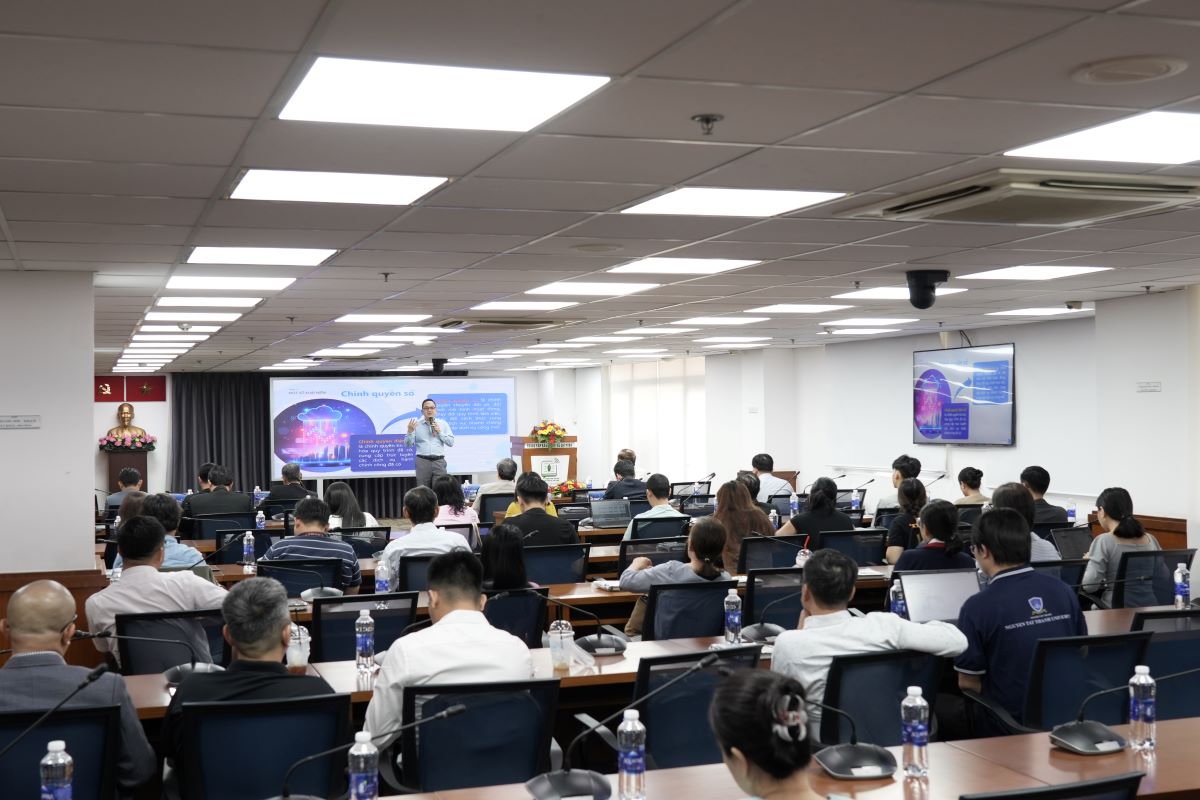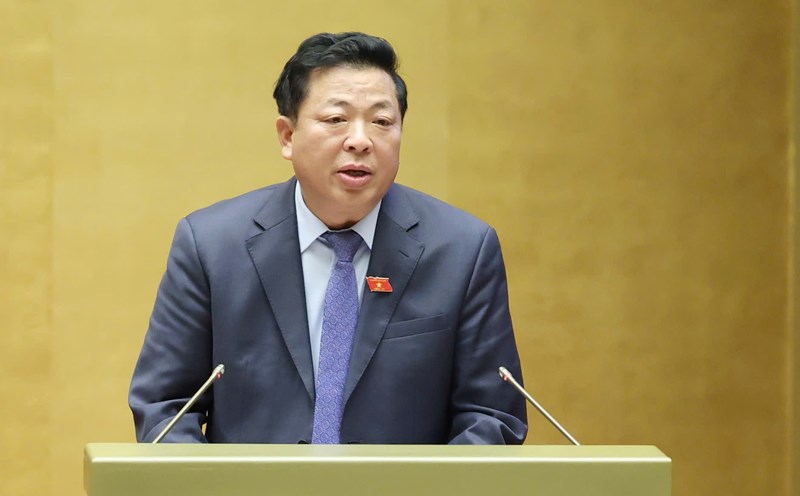On June 18, the Ho Chi Minh City Communications - Electronics Association coordinated with the Ho Chi Minh City Digital Transformation Center to organize a seminar on "Digital transformation in Ho Chi Minh City in the context of merger".
HCMC launches the "30 minutes - Digital transformation" newsletter
At the beginning of the seminar, Mr. Nguyen Thanh Hoa, Deputy Director of the Ho Chi Minh City Digital Transformation Center, shared the picture of digital transformation in the city in the context of merger.
From the application of information technology to digital transformation, Ho Chi Minh City has come a long way. However, in this process, the "digital" part, that is, technology infrastructure, is often focused on while the "conversion" part, that is, applying new models, new business forms, has not received due attention," Mr. Thanh Hoa shared.
In addition, Mr. Hoa also shared about the important digital transformation platforms that the city has implemented, including: Building infrastructure and digital data, city data portal, shared digital map, information portal for receiving and answering information for people and businesses (Gate 1022), digital transformation portal, digital citizen application...
In addition, on this occasion, the Ho Chi Minh City Digital Transformation Center launched an online training platform for commune and ward staff in the city, along with the bulletin "30 minutes - Digital Transformation in Ho Chi Minh City" to update information, share experiences and promote awareness of digital transformation in the community.

Blockchain Association of Ho Chi Minh City launches solutions to combat counterfeit goods
Also at the event, Ms. Le Nguyen Tra My, representative of the Blockchain Association of Ho Chi Minh City, shared digital transformation solutions in the field of intellectual property, with the goal of turning intelligence into assets, creating motivation for Ho Chi Minh City to make a breakthrough in the context of merger.
In 2024, Vietnam processed more than 140,000 industrial property registrations, but the commercialization rate was only about 0.1%, 50 times lower than the world average and 100 times lower than developed countries.
The main reason is the lack of a specialized, transparent platform for intellectual property transactions and a standardized valuation mechanism, making it difficult for inventions and ideas to access the market and promote economic value.
According to Ms. My, the block chain is the key to not only managing intellectual property well but also turning it into a real driving force for the economy.
The Blockchain Association of Ho Chi Minh City has consulted on the application of block chain technology to establish "digital birth certificates" representing the right to own a certain type of property, including intellectual property rights. In particular, this "paper" is stored on a block chain, so it is completely un forged.
From there, the block chain proposes 3 development directions for digital transformation:
- Identify the real product and trace the origin. This solution not only responds to the National Digital Transformation Program under Decision 749, but also directly contributes to the implementation of Project 100 of the Prime Minister on building a national product traceability system.
- Build a transparent and effective "Idea Market", turning research results into assets for transactions.
- Smart management, supporting mergers. Block chain technology allows the creation of an interconnected and unchanged database where all patent and trademark records are stored securely, transparently and can be viewed instantly. This is an effective tool to ensure that intellectual property is managed smoothly and effectively in the context of city mergers.











